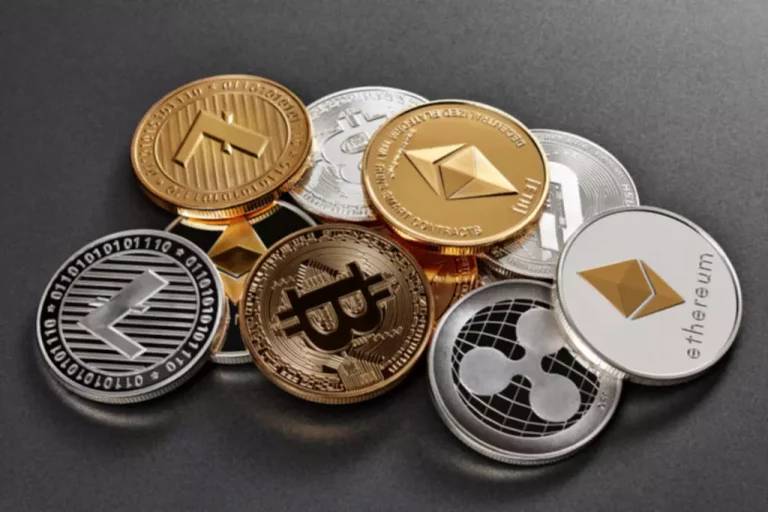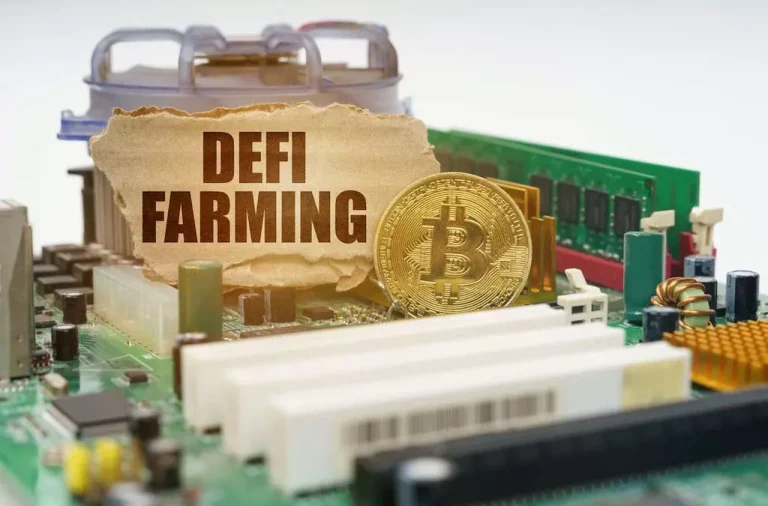Custodial Vs Non-custodial Wallets Whats The Difference?
by siteadmin
While these wallets will not be an easy goal for hackers because of the involvement of various conformations, they’re nonetheless vulnerable to security breaches. While the phrase “not your keys, not your coins” stands true when utilizing a custodial pockets, users can theoretically still get well their funds if they lose entry to their login credentials. At the same time, using a non-custodial pockets means bearing complete responsibility for any loss or theft.
Not sure whether to keep your own crypto key or let another person hold it for you? Since custodial wallets can not operate offline, they’re extra prone to hacks and online theft. Moreover, custodial wallets require KYC documents that infringe on person anonymity. Thus, creating a non-custodial wallet is faster and easier, and users have the profit of anonymity. With a custodial wallet, every transaction requires approval from the central change. The transaction historical past is also not recorded on the underlying blockchain in real-time, and transaction costs are usually greater because of the involvement of custodians and other intermediaries.
- Custodial wallets require an internet connection to achieve centralized servers and entry blockchain information.
- BitPay Wallet makes it simple for customers to manage their assets across platforms, including a simple integration to your Coinbase account.
- As soon as the sales are completed, your NFTs might be distributed to the buyers.
- If you don’t use a custodian, you keep away from paying extra custodial charges, which could be expensive relying in your service supplier.
- Please note that the supply of the services and products on the Crypto.com App is subject to jurisdictional limitations.
- Transaction costs are also cheaper as a result of there are few or no commission-seeking intermediaries.
If the user’s pc or hard drive had been to ever break down, the pockets may be recovered and re-uploaded using this seed phrase. Non-custodial wallets have a quantity of varieties, however they are largely categorized into three segments. Custodial wallets are provided by centralized companies, such as crypto exchanges like Coinbase and Binance, but there are also pockets suppliers that hold their users’ personal keys. Custodial wallets are crypto wallets which are managed by a third-party platform. Instead, the third-party provider is entrusted to securely store these keys on behalf of a crypto owner. In different words, you’re trusting a 3rd party to safe your funds and return them if you wish to trade or send them elsewhere.
MetaMask, Trust Wallet, and MathWallet are non-custodial wallets that settle for the most typical and popular crypto property. If you are unsure of what tokens your pockets supports, verify their official FAQ or documentation for more data. However, don’t neglect that in this case, a third party has custody over your funds. That’s why it’s necessary to choose a dependable trade or service provider. In the case of Custodial cryptocurrency exchanges, a huge amount of users’ funds is saved in cold and hot wallets.
Less Privacy, Kyc Necessities
Blockchain users should buy crypto on MoonPay with their credit/debit playing cards, Apple Pay, Samsung Pay, and Google Pay. Be positive to examine the network fees before making any funds to avoid paying additional gasoline fees. This article offers all the data you have to make an informed decision concerning the wallet type that is best for you.
There are professionals and cons for each types of wallets, so weigh your consolation stage with the features that matter most to you before deciding. You’ll additionally need to contemplate the perks each wallet offers, like crypto debit or credit cards, staking alternatives, cashback rewards and the variety of cash supported. A non-custodial crypto wallet is a pockets where solely the holder possesses and controls the personal keys. For users who need full control over their funds, non-custodial wallets are the best option. Since there aren’t any intermediaries, you presumably can trade crypto directly from your wallets.
While hardware wallets are a standalone bodily gadget used to retailer digital assets, software wallets are put in on a user’s device (desktop or mobile). Both hardware and software program wallets store the non-public keys—strings of letters and numbers that act, in impact, like a extremely delicate password. With custodial wallets, users should utterly depend on a 3rd party custodian for storing their personal key. If the third get together does not have sturdy security measures, the person is susceptible to shedding their funds. A liquidity disaster like the one at Celsius might additionally jeopardize investor funds.
Send & Obtain
For users who need more control over their funds, non-custodial wallets are the best suited choice. Most cryptocurrency customers use both, however it all depends on your preferences. If you want complete management over your assets, use a non-custodial pockets. But if you want a service supplier to deal with your storage wants while you commerce or make investments, you’ll be able to search for reputable custodial pockets service suppliers.

For long-term storage, you have to maintain your funds in a non-custodial wallet. But just ensure you have clear and well-referenced documentation of your pockets data (especially your recovery phrase and your decryption password). Also, all the time follow wallet safety best practices to avoid an in any other case extremely painful lack of your crypto. As a complicated crypto person, you’ll be well placed to completely use non-custodial wallets to handle your crypto assets.
Self-custodial Pockets Vs Non-custodial Wallets
However, you have to be sure that your pockets supports the cryptocurrency you plan to retailer. Remember that the identical tokens may be out there on multiple blockchains underneath different networks. Cryptocurrency wallets are primarily used for storing crypto property custodial wallet vs non custodial (or somewhat the personal keys to entry them). Unlike custodial wallets, customers can easily entry their stored funds in any scenario and without KYC, as there isn’t any need for a affirmation notice from any third get together.

But, as talked about before, the duty for maintaining the vital thing safe is within the arms of the pockets owner. If they lose the keys and may’t keep in mind their backup seed phrase, the wallet and its funds are misplaced. There are a quantity of non-custodial wallets available as apps, executables, and browser extensions. You also can find wallet services, corresponding to Tor.us, that allow customers to use social logins to safe their keys, making the method more secure and handy. A custodial crypto pockets would not provide you with full control of your non-public keys. A third celebration (such as an trade or custodial wallet service provider) will retailer your belongings for you.
Execs And Cons Of Non-custodial Wallets
You mustn’t construe any such data or other materials as authorized, tax, investment, monetary, cyber-security, or other recommendation. Nothing contained herein shall constitute a solicitation, advice, endorsement, or supply by Crypto.com to invest, purchase, or sell any cash, tokens, or different crypto property. Returns on the buying and promoting of crypto property may be topic to tax, together with capital features tax, in your jurisdiction. Any descriptions of Crypto.com products or features are merely for illustrative purposes and do not constitute an endorsement, invitation, or solicitation.

You have the selection to create particular person NFTs or a Collection, which consists of a group of NFTs. This, in return, signifies that Non-Custodial wallets are a greater option to get pleasure from full blockchain development providers in real-time. Whereas, in case of Non-Custodial crypto pockets comparability, the entire info remains with users. This reduces the danger of information being stolen, except the consumer shares the main points with somebody, or their system will get stolen. People can send cryptocurrency to one of your addresses generated by your wallet’s public key.
Users with non-custodial wallets become their very own banks with round-the-clock entry to their funds. These non-custodial wallets are good for skilled merchants ready to shoulder the good accountability of storing their keys safely. For crypto users seeking the liberty supplied by a non-custodial wallet there are a variety of trusted providers along with BitPay Wallet. Some of those include Trust Wallet, Electrum, Exodus, Edge Wallet, Blockchain.com and MetaMask. However, you need to make sure that the wallet you use helps the sort of crypto you wish to store.
Amid the global pandemic, the cryptocurrencies and the digital asset market ballooned into a trillion-dollar industry. Newcomers to crypto may be intimidated by all of the jargon relating to new technology, languages, and software, but you don’t essentially need to be taught all the lexicon at once. Some wallets additionally allow you to store and transfer non-fungible tokens (NFTs) issued on a blockchain.
While these wallets will not be an easy goal for hackers because of the involvement of various conformations, they’re nonetheless vulnerable to security breaches. While the phrase “not your keys, not your coins” stands true when utilizing a custodial pockets, users can theoretically still get well their funds if they lose entry to their login…
Recent Comments
Archives
- April 2024
- March 2024
- February 2024
- January 2024
- December 2023
- November 2023
- October 2023
- September 2023
- August 2023
- July 2023
- June 2023
- May 2023
- April 2023
- March 2023
- February 2023
- January 2023
- December 2022
- November 2022
- October 2022
- September 2022
- August 2022
- July 2022
- June 2022
- May 2022
- April 2022
- March 2022
- February 2022
- January 2022
- December 2021
- November 2021
- September 2021
- August 2021
- July 2021
- June 2021
- May 2021
- April 2021
- March 2021
- February 2021
- January 2021
- November 2020
- October 2020
- September 2020
- August 2020
- July 2020
- June 2020
- May 2020
- April 2020
- March 2020
- February 2020
Categories
- – 345
- – 441
- – 733
- – 734
- 1
- 12.04
- 153 – İdman mərc oyunlarının həyata keçirilməsi məqsədi ilə hüquqi şəxsin akkreditasiya olunması Qaydasının və İdman mərc oyunlarının təşkili və keçirilməsi Qaydalarının təsdiq edilməsi haqqında – 758
- 1Win Brasil
- 1xbet apk
- 1xbet Argentina
- 1xbet Azerbajan
- 1xbet Azerbaydjan
- 1xbet Brazil
- 1xBet como Retirar Dinero Instrucciones Sin Comisiones 391
- 1xbet giriş
- 1xbet Kazahstan
- 1XBET Mobile APK Smartfon proqramını yükləyin 941
- 1xbet Russian
- 1xBet, 1xbet Giriş, 1xbet Türkiye, 1xbet Girişi, XBET, Birxbet – 65
- 1xbet: Azərbaycan Mərc Saytı 1xBET Az, 1xbet mobi 2023 130
- 1xbet: Azərbaycan Mərc Saytı 1xBET Az, 1xbet mobi 2023 912
- 5.03-2
- AI News
- Artificial Intelligence
- AZ Most BET
- Azerbajany Mostbet
- Azeri bukmeker saytlari: onlayn mərc saytları Azərbaycanda – 321
- Azeri bukmeker saytlari: onlayn mərc saytları Azərbaycanda 944
- Azərbaycanda turizm Tourizim və Səyahhət Agentliyi 853
- b1bet apostas
- Bahsegel giris
- Betsat
- Bettilt casino
- blog
- Bonus Za Rejestrację Bez Depozytu 2023 Bonus Z Brakiem Depozytu 817
- Bookkeeping
- Bootcamp de programação
- Bootcamp de programación
- casino
- Casino sitesi
- casino-gaming-online
- Cialis mit rezept
- Codere Argentina
- Codere Italy
- Cryptocurrency exchange
- Cryptocurrency News
- Cryptocurrency service
- Dasinmaz emlak elanlari, ev elanlari, ev alqi satqisi, kiraye evler, torpaq, obyekt, bina, bina ev, mənzil, villa, kreditle satilan evler – 49
- Dating
- Education
- FinTech
- Forex Reviews
- Forex Trading
- game
- Generative AI
- Graj w kasyno za darmo lub na pieniądze 529
- Greek online casinos
- Immediate Edge Review 2023 Is It a Scam or Is It Legit? – 110
- Immediate Edge Review 2023 Is It a Scam or Is It Legit? – 823
- Immediate Edge Review 2023: Is it a Scam or Legit? – 427
- Immediate Edge Review 2023: Is it Legit, or a Scam? Signup Now! – 225
- Immediate Edge Review: How Immediate Edge App Software Works? – 226
- International dating
- IT Vacancies
- IT Образование
- January 24
- Kazino oyunları Giris Yukle Bonuslar – 890
- Kommunal az : Kommunal ödənişlər 741
- La Palma Und Die Kataklysmus Ein Jahr Nach Dem Vulkanausbruch – 999
- LeoVegas Finland
- LeoVegas India
- LeoVegas Irland
- LeoVegas Sweden
- Mail Order Brides
- mostbet apk
- mostbet az 90
- MostBet AZ Most Bet Casino Qeydiyyat, Yukle Android App 799
- mostbet azerbaijan
- Mostbet Azerbaycan
- Mostbet Casino Mostbet Giriş Mostbet Casino Oyunları 617
- mostbet giriş
- Mostbet India
- mostbet kirish
- MostBet Mobile App və Bukmeker Şirkətinin Mobil Versiyası – 211
- MostBet Mobile App və Bukmeker Şirkətinin Mobil Versiyası 296
- MostBet Mobile App və Bukmeker Şirkətinin Mobil Versiyası 517
- mostbet ozbekistonda
- mostbet royxatga olish
- Mostbet Turkey resmi sitesi 340
- Mostbet Türkiye En Güvenilir Mostbet Tr Bahisçi Ofisinin Incelemesi 997
- mostbet uz
- Mostbet Uzbekistan
- New
- News
- NLP algorithms
- Online Apotheke
- Online Casino
- Online Dating
- pagbet brazil
- Paribahis
- Pin Up Online Casino Azerbaycan ️ Onlayn Kazino PinUp Rəsmi Saytı – 799
- Pin Up Yükle apk Indir – 67
- PinUp apk
- Play Game Online and Live, Bonus 25,000 188
- Potenzmittel
- resmi site Mostbet Türkiye kumarhanesine giriş Mostbet resmi aynasından para için çevrimiçi oynayın, kayıt olun 214
- SENSASİON: "Mostbet" və "1xbet" mərc oyunları Azərbaycan gəncliyini belə məhv edir – 466
- SmartPay az : Onlayn Ödəniş Portalı – 472
- Sober living
- Software development
- Sprawdź Najlepsze Kasyno Online w Polsce 733
- Telemedizin
- test2
- test3
- Uncategorized
- Uncategorized1
- UZ Most bet
- Vulkan Vegas 50 free spins 50 spinów na Book of Dead! 890
- Vulkan Vegas Bonus und Promo Code 2022 Bonusprogramm 238
- vulkan vegas DE
- vulkan vegas DE login
- Vulkan Vegas Germany
- Vulkan Vegas Poland
- VulkanVegas Poland
- Welcome to Mostbet casino, your one-stop destination for the ultimate gaming experience 404
- Yarışda kim qalacaq: Avropa Liqasının pley-off oyunları – 149
- Yarışda kim qalacaq: Avropa Liqasının pley-off oyunları – 911
- Будівництво
- Будівництво Будинків
- Вопросы И Ответы Про Бк Mostbet Gəlinlik, Gəlinlik Modelleri, Gəlinlik qiymətləri 450
- казино и букмекерская контора в Узбекистане – 414
- мобильная версия Мостбет в Узбекистане – 336
- Мостбет Mostbet УЗ Узбекистан, букмекерская контора в Узбекистане UZ – 736
- Мостбет Официальный сайт Mostbet. Зеркало. Скачать – 873
- Мостбет Уз Ставки на спорт и казино в букмекерской конторе Mostbet Uz – 857
- Онлайн-казино MostBet лицензированный игровой клуб с лучшими слотами 198
- Официальный сайт Мостбет Ставки на спорт Mostbet – 469
- ПАрущуки
- Приложение Mostbet UZ скачать на Андроид APK, Айфон IOS 23
- Сегодня, 1 июля началась онлайн-регистрация документов соискателей в магистратуру 12
- Скачать Mostbet UZ на Андроид apk и IOS: обзор букмекера – 816
- Финтех
- Форекс Брокеры
- Форекс Обучение
- Форекс партнерская программа